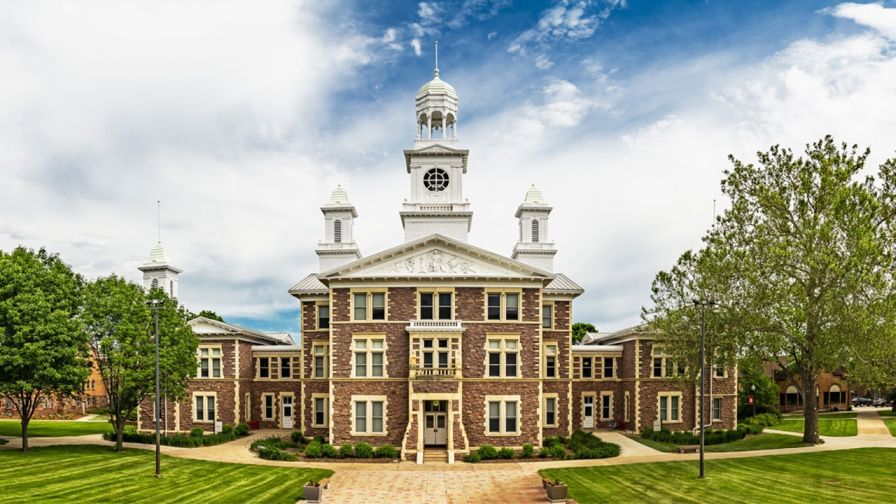
Old Main university hall | University of South Dakota (USD)
The University of South Dakota (USD) is joining a national group of universities aiming to research the climate-resistant capabilities of greenhouses to maximize available agricultural and horticultural opportunities. Other participating schools in the project include the University of New Mexico, the University of Wyoming, New Mexico State University, and Santa Fe Community College.
The Established Program to Stimulate Competitive Research (EPSCoR), which grants $77.8 million to research projects in often overlooked areas of the country, is a product of the U.S. National Science Foundation.
“We have extreme climate variability across this range, but in different challenging ways,” says Meghann Jarchow, Chair of the USD Department of Sustainability and Environment. “So, the focus is to look at how does controlled environment agriculture do across this wide area? For example, in South Dakota, we can’t grow food in the winter outside, so greenhouses can be used in the winter to grow food.”
However, the efforts to research such opportunities aren’t as simple as constructing and installing greenhouses across the state of South Dakota.
“With greenhouse agriculture, you either have to heat them like in our case with the winter, or cool them if it gets too hot,” says Jarchow. “So, the focus of this is to have experiments of growing agriculture throughout this region and then taking a lifecycle approach. Looking at the full impacts of energy, the resources used to grow food across this wide range.”
Additionally, Jarchow notes the effects this research can have on tribal food sovereignty in South Dakota and other states involved in the “Harnessing Controlled Environment Agriculture to Secure Sustainability and Economic Growth” project.
“This region spans hyper-arid to humid climates, which will provide an exceptional range through which to study CEA. This project brings together researchers, practitioners, and educators from a wide geographic region to explore the plant biology, desirability, and life cycle impacts of CEA across this region. The Lakota, Navajo, Northern Arapaho, and Eastern Shoshone tribes who are part of this project all have food sovereignty efforts, and we are excited to be able to work with them to study CEA across the region.”
“Every part of our nation has been impacted by the changing climate. We build a sustainable future for all by investing in climate resilience research and solutions across our country,” says National Science Foundation Director Sehturaman Panchanathan. “By empowering researchers from different EPSCoR jurisdictions and enabling collaborations across diverse institutions from the Mountain West to the Gulf Coast, from the Southwest to the mid-Atlantic and New England and beyond, we are driving innovation that fosters STEM opportunities, economic growth and climate resilient communities.”

